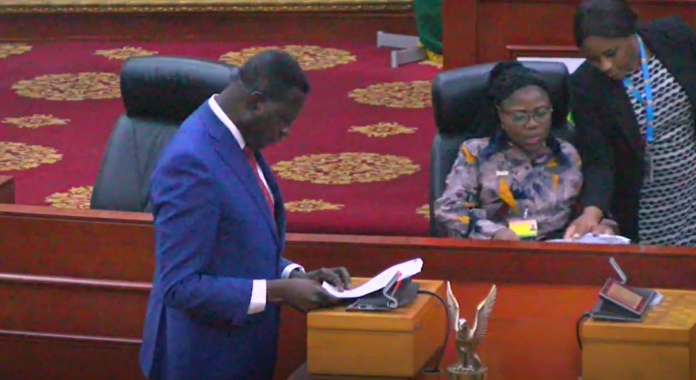How Corruption Is Negatively Affecting Churches And Christianity In Africa

Corruption is a major problem in Africa, and it is having a negative impact on churches and Christianity on the continent. When religious leaders engage in corrupt practices, it erodes trust in the church and undermines people’s faith. Corruption also diverts resources away from important needs, such as helping the poor and building schools and hospitals. It also creates a culture of impunity, where people believe that they can get away with breaking the rules.
Corruption in African churches has a long history. Some of the earliest documented cases date back to the colonial era, when European missionaries and colonial officials often used their positions of power to enrich themselves. For example, in the 19th century, the Church Missionary Society (CMS) was accused of misappropriating funds that were intended for charitable purposes.
In the post-colonial era, corruption in African churches has continued to be a problem. This is due to a number of factors, including:
- The weakness of state institutions: In many African countries, state institutions are weak and corrupt. This makes it difficult to hold religious leaders accountable for their actions.
- The lack of transparency and accountability: Many African churches lack transparency and accountability mechanisms. This makes it easy for religious leaders to embezzle funds and engage in other corrupt practices.
- The culture of impunity: In many African societies, there is a culture of impunity. This means that people who are involved in corruption are often not held accountable for their actions.
The negative impact of corruption in African churches is far-reaching. It erodes trust in religious leaders, undermines people’s faith, and diverts resources away from important needs. It also creates a culture of impunity, which makes it difficult to achieve development goals.
By the late Middle Ages, the Church controlled just everything and so leaders of some churches began to live fancy and extravagant lives. They raised taxes on their followers and charges higher fees for services including weddings, baptisms, and the like, and the funds raised were used to pay for their lavish lifestyles. In other jurisdictions, the clergy started to sell indulgences – Forgiveness or sins committed and many Christians who were right-thinking members of the faith had a problem with this. Today, there are many one-one churches in Africa that are reaping members of their income in the name of miracles, blessed water, and miracle oils among others, These are all corruption in the church.
Corruption is more common in one-man churches right from the lifestyle of the leader. In such churches, the man of God rides in better cars and lives a lavish life while members wallow in poverty and struggle since all the offerings are under the control of the so-called church owner who does whatever pleases him or her with the church funds.
However, in the Orthodox churches, and Charismatic churches, corruption is very common and less spoken about in public, but those in the inner circles know how members and leadership are stealing from the body of Christ.
How Corruption Is Negatively Affecting Churches And Christianity In Africa
Corruption is a major problem in Africa, and it is having a negative impact on churches and Christianity on the continent.
- Corruption erodes trust in religious leaders. When people see religious leaders engaging in corrupt practices, it undermines their faith and trust in the church. This can lead to people abandoning their faith altogether or becoming less active in church life.
- Corruption diverts resources away from important needs. Money that could be used to help the poor, build schools and hospitals, or support other charitable causes is instead being used for personal gain by corrupt officials. This has a devastating impact on the most vulnerable members of society.
- Corruption creates a culture of impunity. When people who are involved in corruption are not held accountable, it sends the message that it is okay to break the rules. This can lead to a breakdown of law and order and make it difficult to achieve development goals.
READ: Sad But Real Facts About Christianity in Africa
There are a number of things that can be done to address corruption in churches and Christianity in Africa. These include:
- Enacting and enforcing strict anti-corruption laws. This would send a clear message that corruption will not be tolerated.
- Making it easier for people to report corruption. There should be clear channels for people to report corruption without fear of reprisal.
- Supporting independent watchdog organizations. These organizations can play a vital role in exposing and combating corruption.
- Promoting transparency and accountability. Churches and other religious organizations should be transparent about their finances and operations.
- Educating the public about corruption. People need to be aware of the problem of corruption and how it can be harmful.
- Strengthening state institutions: African governments need to strengthen state institutions, such as the judiciary and the police, so that they can hold religious leaders accountable for their actions.
- Changing the culture of impunity: African societies need to change the culture of impunity so that people who are involved in corruption are held accountable for their actions.
Addressing corruption is a complex challenge, but it is essential if we want to build a more just and equitable society in Africa. Churches and other religious organizations have a role to play in this fight, and they should be willing to take steps to root out corruption within their own ranks.
Send Stories | Social Media | Disclaimer
Send Stories and Articles for publication to [email protected]
We Are Active On Social Media
WhatsApp Channel: JOIN HERE
2024 BECE and WASSCE Channel - JOIN HERE
Facebook: JOIN HERE
Telegram: JOIN HERE
Twitter: FOLLOW US HERE
Instagram: FOLLOW US HERE
Disclaimer:
The information contained in this post on Ghana Education News is for general information purposes only. While we endeavour to keep the information up to date and correct, we make no representations or warranties of any kind, express or implied, about the completeness, accuracy, reliability, suitability or availability with respect to the website or the information, products, services, or related graphics contained on the post for any purpose.



 Profile Of Kwabena Boateng, Ejisu MP Elect
Profile Of Kwabena Boateng, Ejisu MP Elect  KNUST student honoured at International Sports Media Awards (AIPS)
KNUST student honoured at International Sports Media Awards (AIPS)  GNAPS calls for urgent subsidy of BECE charges for private schools
GNAPS calls for urgent subsidy of BECE charges for private schools  How to Create Good Study Habits for Exams
How to Create Good Study Habits for Exams  How to Help Your Child Prepare for Exams
How to Help Your Child Prepare for Exams  GES To Query 42 Teachers In The Upper West Region; Here’s Why
GES To Query 42 Teachers In The Upper West Region; Here’s Why